Mike Reid: football, music and everything in between
Mike Reid plays “I Can’t Make You Love Me’, a song he originally wrote in 1990. The song was written for Bonnie Raitt, and was recorded by hundreds of different artists.
It’s not often an individual gets to play for the Cincinnati Bengals as well as earn himself a Grammy or even get 21 number one hits on the country charts. However Mike Reid, a graduate from AAHS, was able to do all three, and perhaps, a little bit more.
Reid received his degree in music from Penn State University in 1970, but it quickly became overshadowed by his outstanding performances on the football field. He was an All-America selection and won the Maxwell Award, along with the Outland Trophy as the country’s outstanding collegiate lineman. Eventually, he was a first-round draft pick for the Cincinnati Bengals in 1970. At the end of his very first season as a part of the NFL, he was named Defensive Rookie of the Year. Reid was even voted as an NFL All-Pro in 1972 and 1973.
Despite the incredible honors Reid earned throughout his football career, his gut was telling him that he needed to do something different. In 1980, he retired from the Bengals and decided to move to Nashville to jump-start a career in songwriting.
His career was booming. In 1983, Reid scored his very first number one country song, “Inside,” by Ronnie Milsap. Since then, he has composed more than 30 top ten country and pop hits, 21 of those being number one. His song “I Can’t Make You Love Me” , first released by Bonnie Raitt, has been recorded over 500 times. Reid has been the recipient of ASCAPS’ songwriter of the year award, and “Stranger In My House”, earned a Grammy.
Reid was nominated to become part of Altoona’s Distinguished Alumni, and on March 17 2023, he gave a presentation to the students who take part in the school’s music and performing arts programs.
Reid was able to give himself a name in such a short amount of time, and the question I’m sure remains is: “how was he able to do it?” In fact, that was my question I had for Reid, and in the brief time I spent with him, I had questions answered that I didn’t even know I had.
“It’s perfectly natural to be conflicted,” Reid said. “I would say to someone who feels that way to give themselves a break. Get off your own back a little bit. There is nothing anywhere that says you have to know what path to take when you’re only in high school.”
For someone who is extremely successful, Reid had no intention of talking too much about his music or football career. What he truly cared about, was reaching out to the students who feel lost as a reassuring guide that everything is eventually going to be okay.
His presentation started with him saying: “I have nothing prepared,” which, ironically, was a direct parallel to the theme he developed throughout his speech. Reid was a voice of reason, and he spoke about how it isn’t necessarily important to have a direct plan in life, since not having one led him down an incredible path of opportunity.
“I think it’s contemporary culture stressing out young people, making you feel like you need to know everything when you don’t have to. The internet is one piece of something. It’s an algorithm that isn’t even real. Right here, your life—that is real. That’s what’s real,” Reid said. “It’s easy for me to say this, because I’m an old man. I’m on my way out, you guys are all on your way in. It stands to reason that the complexity of the digital world cast you into a place of natural confusion.”
Reid expressed how confusion should be exciting, something that should draw an individual in. He didn’t know what he wanted to do with his life, but he knew he was going to do something, and his message conveyed throughout the 90 minutes he spent with students. When a student had raised her hand to ask him a question wondering how he overcame the doubts that transpired with committing to such risky careers, Reid responded with: “I haven’t overcome them, and I don’t think I ever will.”
Overall, the theme Reid expressed was to not let the internet influence young teenager’s minds.
“I’ve had a certain element of success in my life that has only caused me to misunderstand who I was as a person. I might have believed that I was those successes, and I’m not, because they’re fleeting. They’re gone,” Reid said. “The eternal nature, it’s in you. At some point, as you go through life, you want to listen to that. At a young age, it whispers, and it whispers for you. You have to hear the internet, you can’t help but hear the internet. There’s a difference between listening and hearing.”
Reid communicated he was overly aware of how different the media is in the current age compared to how it was when he was growing up.
“Decades ago, roughly 10 percent of young people interviewed said that they wanted to be famous. Now, it’s 80 to 90 percent. This will change. It’s an old cliche: the only thing constant is change. Nothing stays the same, and nothing that you think is riveted in place is going to stay the same,” Reid said. “A hundred years ago, there was a new invention called the ‘automobile’. So, we had all this time to figure out how we were going to accommodate this change. The buggy and whip salesman has got to do something, right? A hundred years later, there are rapid changes coming at us every day, and we don’t have enough time to process how to manage these changes. I believe deeply that the noise and screaming of the culture is, not erasing or eliminating, but, momentarily covering up a small voice that is telling you the right thing.”
To finish his presentation, Reid played “I Can’t Make You Love Me” at the piano, and he demonstrated how the passion and emotion in music is something similar to a giant metaphor of life, and how difficult it is to navigate at a young age. Reid explained that the specific lyrics, “you can’t make your heart feel something’ it won’t”, reminded him of how his soul felt a connection to music, despite all the success he had in football. He decided he wanted to do something that he truly wanted to do, and it was a vital point he made.
“Check everything out. Then, you’ll come to a place where the digital age does not tell you who you are,” Reid said. “You have every right through life. You live to tell the world who you are and what it means for you to be here now. That matters. More than anything.”

My name is Makenzie Closson. I am a second year member of the Mountain Echo and Horseshoe yearbook staffs. Last year, I became a PSPA finalist and even...


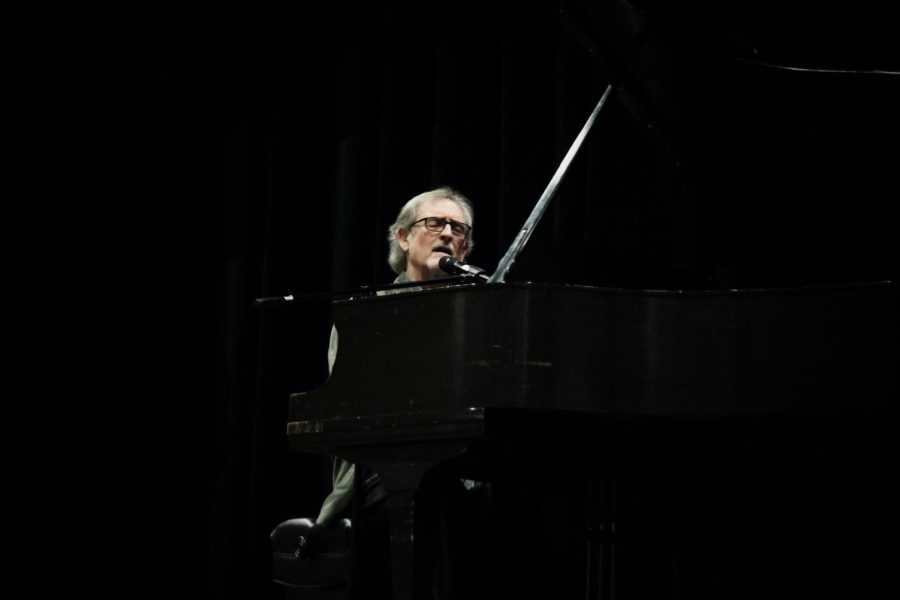



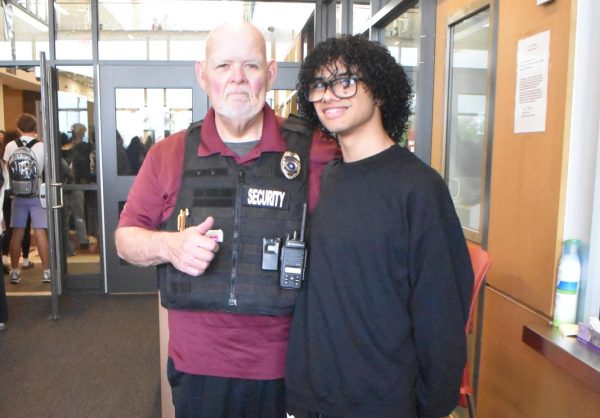
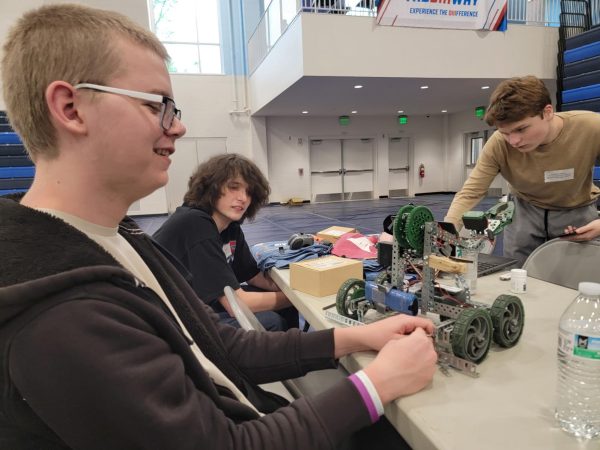
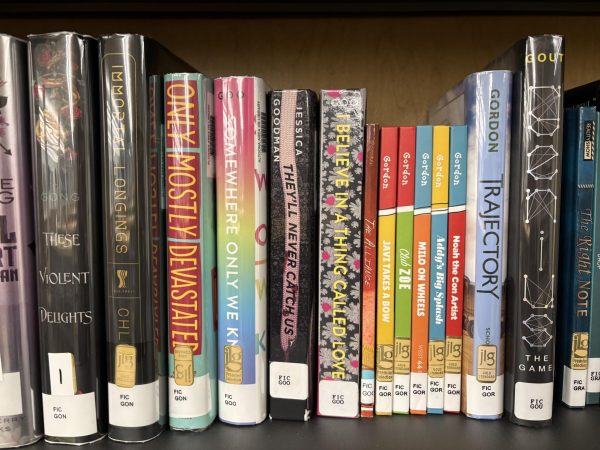
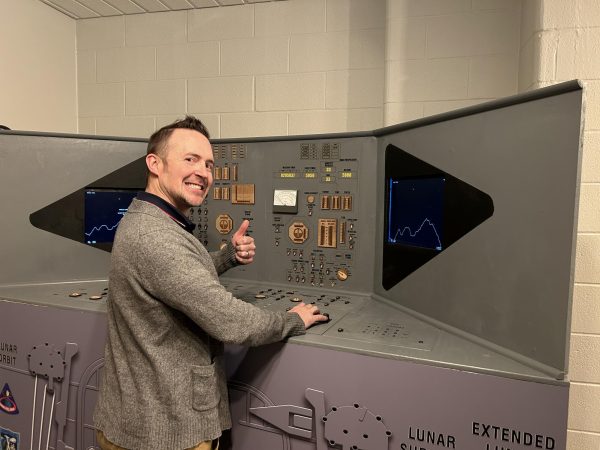
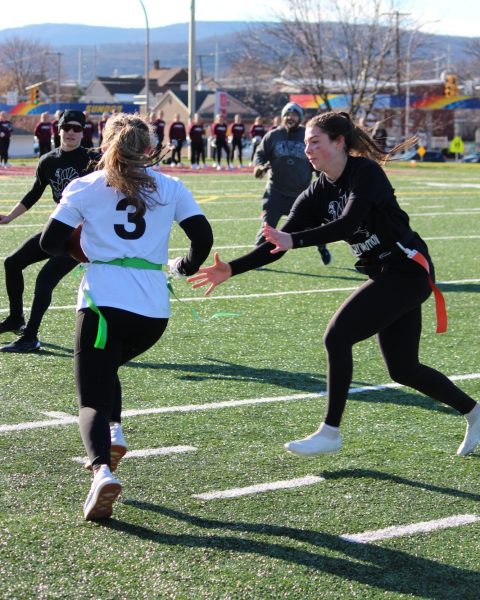
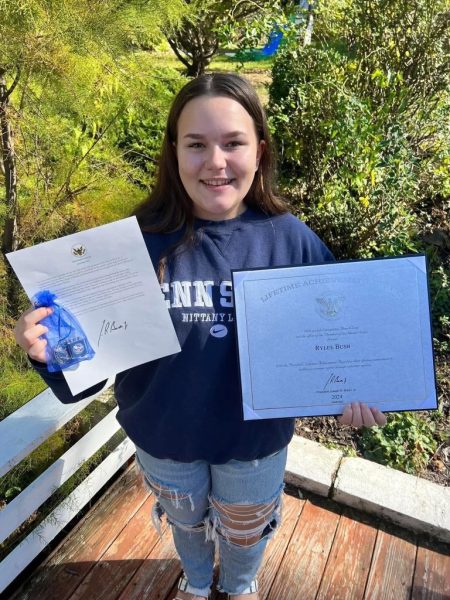
Mark Baker • Sep 17, 2024 at 12:23 am
I had the pleasure of appearing in a Penn State Thespian musical production of GUYS AND DOLLS with Mike when he was redshirted in football at Penn State. He played the part of “Big Jule” and was sensational in the role. We struck up a friendship during that production and Mike shared his appreciation and love of music in the days and months that followed. Yes, he was a great football player… and a great collegiate wrestler but he had so much more to offer in the ensuing years and his musical accomplishments prove it. I am so happy to have been a friend and I am proud to be a Mike Reid fan.
Jim Keil • Mar 5, 2024 at 8:38 pm
Oh, and by the way, he also was the Eastern States Wrestling Champ in his senior year!
Haiden Frederick • Mar 23, 2023 at 8:50 am
great guy big man